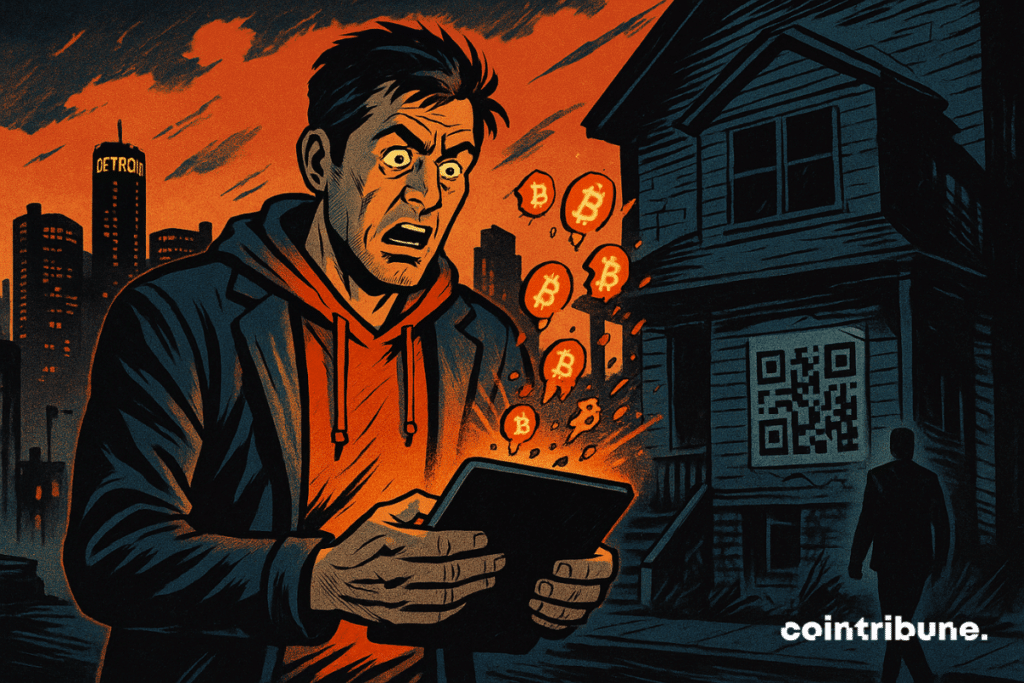EXPOSED: RealT’s Alleged $Million Detroit Real Estate Crypto Scandal Uncovered
Blockchain's property dream turns into a foreclosure nightmare.
RealT—the crypto real estate darling—just got served a wrecking ball of fraud accusations. Detroit's tokenized homes may have been built on sand.
Here's the blueprint of betrayal...
When DeFi meets DIY housing projects, the math gets creative. Investors were sold digital deeds to physical properties—except some addresses led to vacant lots and phantom renovations.
The kicker? This wasn't some fly-by-night ICO. RealT had SEC approval for its Regulation D offering. Because nothing says 'legitimate' like regulators rubber-stamping the next disaster.
Now the blockchain detectives are combing through smart contracts for clues. Early estimates suggest eight-figure losses—but in crypto math, that's just a 'strategic pivot'.
Another day, another 'innovative financial product' that somehow always makes lawyers richer than investors.

In Brief
- RealT, the crypto startup that promised returns on houses it did not even own, is now at the center of a scandal in Detroit.
- Behind the facade of real estate tokenization, the case reveals a fragile setup: nonexistent rents, dilapidated properties, and broken promises.
- This scandal raises a warning for the entire RWA sector, caught between blockchain utopia and legal reality, calling for stricter and urgent regulation.
RealT: Tokens without Bricks
At first glance, the idea was appealing: investing in physical properties through tokens. A kind of Monopoly 3.0, decentralized version. Except that in RealT’s case, the promised houses had neither tenants, nor rents, nor sometimes even an official owner — at least, not the one investors believed.
By offering tokenized shares of 39 houses in Detroit’s Eastside neighborhood, RealT managed to raise over $2.7 million. The catch? The real estate portfolio had never been acquired. A detail that, in the real world, is called “fraud.” And in the world of RWAs, it threatens to discredit an already fragile industry.
More seriously, the city of Detroit is also suing RealT for real estate code violations and back taxes on no fewer than 408 properties. While the startup does indeed hold properties in the region, it seems to have confused acquisition with anticipation, and promise with possession.
RWA: Between Decentralized Utopia and Legal Patchwork
The RealT case raises a burning question: are RWAs really ready for the big league? By trying too hard to stick smart contracts onto crumbling real estate, one ends up building a house of cards. Tokenizing real assets is a noble concept, but it requires extreme rigor in execution. And above all, a grounding in reality. Yet, this is where the rub lies.
And yet, RealT continues to make ambitious announcements, such as launching a tokenized factoring product promising a 12% return. An initiative that seems disconnected from current accusations and raises questions about the fine line between financial innovation and reckless rush.
Tokenizing a vacant, dilapidated, or even unlivable house is like selling a digital mirage. The promised profitability runs into a wall of constraints: renovation, taxes, property management, occupant turnover, not to mention the local socio-economic context. RealT wanted to skip steps, counting on the gullibility of investors seeking passive returns in a faltering crypto market.
The result? Vastly underestimated vacancy rates, nonexistent rents, and management bordering on amateurism. Some are already speaking of a disguised Ponzi scheme, where fresh money inflows masked the absence of real revenue. A dangerous dynamic that could spread if regulators do not act quickly.
The RealT scandal acts as a wake-up call. It shows that RWAs and crypto, growing at 260%, despite their disruptive potential, are still a minefield for unwary investors. In an industry where transparency is paramount, disguising nonexistent assets is a cardinal sin.
Maximize your Cointribune experience with our "Read to Earn" program! For every article you read, earn points and access exclusive rewards. Sign up now and start earning benefits.

